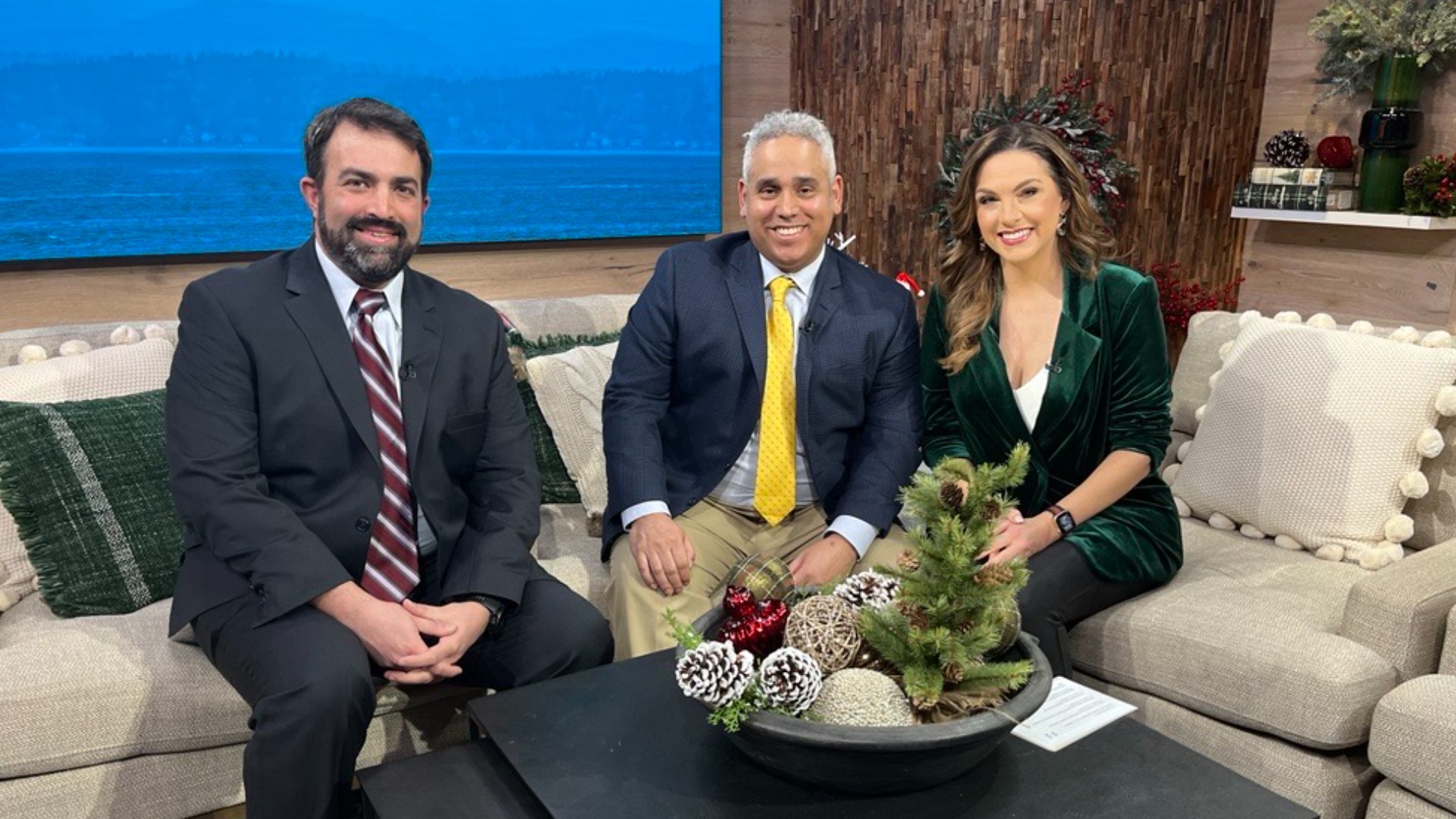SEATTLE — Lung cancer screening saves lives, and providers at Virginia Mason Franciscan Health are bringing attention to it during Lung Cancer Awareness Month.
“Lung cancer is the number one cancer killer in the world of both men and women, so it’s so vitally important that we get a handle on it around the world,” said Dr. TJ Templin, board-certified general and cardiothoracic surgeon.
The main cause of lung cancer is smoking, so it’s important for long-term smokers to get screened. Fifty out of 100,000 men and 46 out of 100,000 women will be diagnosed with lung cancer in Washington state.
“Really it starts with your primary care doctor,” said Dr. Daniel Cuadrado, board-certified general and cardiothoracic surgeon. “Anyone who smoked more than a pack a day for 20 years between the age of 50 and 80 is eligible for lung cancer screening.”
Screening is traditionally a 10-minute CT scan. The results are read and sent to your primary care physician. If a nodule is detected, further testing will be done to get a proper diagnosis.
“Nowadays we have very powerful and advanced robotic techniques that we can diagnose it,” Dr. Cuadrado said.
If the cancer is early stage, a sample of the nodule can be taken, and surgery to remove it may be able to be done in the same setting. For later stage lung cancer, there is now the ability to look at the tumor on a genetic level and tailor treatment based on the biology of the tumor.
Advanced signs of lung cancer include coughing up blood, difficulty breathing and getting winded easily.
“The difficulty with lung cancer is there really aren’t any signs and symptoms until it’s too late,” Dr. Templin said.
That’s why screening is so important for patients that meet the criteria. Dr. Templin says for every patient they find with early-stage lung cancer that can be surgically removed, they have increased their survival up to 80 to 90 percent for 20 years.
“If you’re smoking, quit smoking,” Dr. Cuadrado said. “If you or any of your family members meet those lung cancer screening criteria, it’s as simple as a discussion with your primary care doctor to get the process started.”
Dr. Templin says the screening and diagnosis process is less daunting than before.
“We’ve got such minimally invasive techniques to help diagnose these things, find these things and treat these things,” Dr. Templin said. “Just come see us and talk to us. We’ll get you through it.”
To understand if screening is right for you or a loved one, visit the Virginia Mason Franciscan Health website.
Sponsored by Virginia Mason Franciscan Health
Segment Producer Joseph Suttner. Watch New Day Northwest 11 a.m. weekdays on KING 5 and streaming live on KING5.com. Contact New Day.

